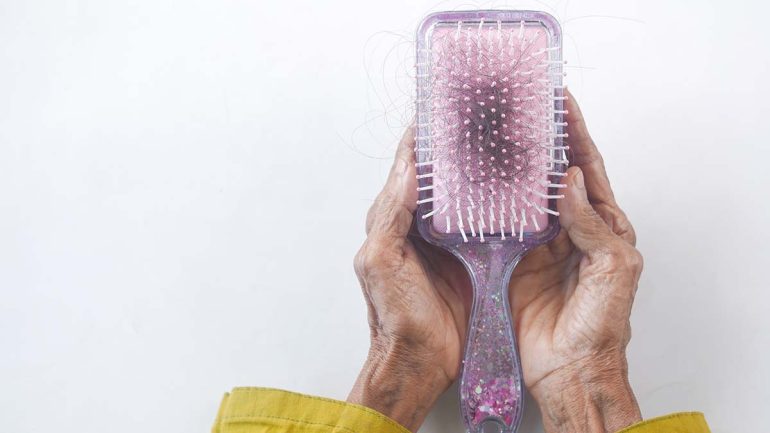Will Smith's recent slap in the face to Chris Rock at the Oscars, on the occasion of a seemingly innocent joke about his wife's alopecia, reminds us that hair loss is non-discriminatory. But especially in times of pandemic, hair loss has increased, both because of the disease and because of the increased stress, as plastic surgeons Dr. Michael Reilly and Dr. Keon Parsa report in an article in Psychology Today.
The hair circle
In the scalp, the hairs go through three phases: 85% of the hairs grow (regenerative phase), 14% stop growing (native phase) and 1% recede (telogen phase). But these percentages vary. As for the type of hair loss due to the pandemic, it is called telogen hair loss (trichorrhoea).
This type of hair loss occurs suddenly and is the result of intense physical or emotional stress. About 70% of the hair enters the telogen phase or the dormant phase of their growth cycle. A person with hair loss can lose three to six times as much hair as normal. This amount can lead to noticeable thinning of the hair and the corresponding exposure of the scalp.
How does the coronavirus affect
Hair loss was one of its effects COVID-19 in patients whose symptoms either subsided within a few weeks or continued after illness with long COVID. However, researchers do not yet know how common hair loss is among patients, but one study found that among those treated, 22% still had hair loss up to six months later.
Similarly, even for those who were not infected with the coronavirus, stress was an aggravating factor that could enhance hair loss.
There is a solution;
The good news, though, is that this hair loss is temporary and can be reversed within three to six months. In addition to stress relief techniques that you could follow, you can also boost your body with biotin, folic acid and vitamin B12.
If hair loss persists, you can also choose medication options such as minoxidil and finasteride, but always consult a specialist. Finally, in the most severe cases, hair transplantation is recommended, which has been shown to improve both the psychology of patients and the image they have of themselves.
After all, the mental imprint of hair loss negatively affects both women and men. According to a study that evaluated more than 1.500 men with hair loss, 70% considered hair as one of the important features of their image. Hair loss has been linked to anxiety about their attractiveness but also to feelings of depression.
For women, hair loss was accompanied by negative self-esteem and lack of self-confidence. Negative mental health effects have been shown to be present for up to 10 years after the initial hair loss.
Source: ygeiamou
